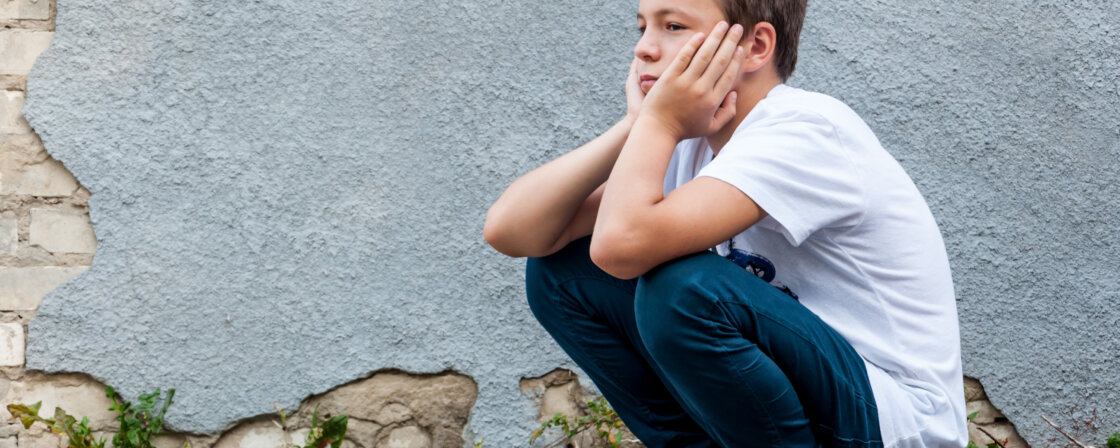Parents and the system of social and legal protection of the child
A fundamental principle that should be respected in this context is the right and duty of parents to raise their children according to their conscience and convictions. It is only when parents require the help of the state authorities, or in a situation where they are unable to fulfil their role for whatever reason (for example, because of serious illness, a difficult social situation, addiction to drugs or other addictive substances), that state intervention is appropriate.
In a broader sense, the system of social and legal protection of the child includes not only the institutions that deal with protection, but also all legislation relating to family law, health, education, or social or criminal law. In general, therefore, all those that contribute in some way to the protection of the child from any kind of violence, abuse and other similar treatment.
Situations in which
- the parents of the children have died, fail to fulfil the obligations arising from parental responsibility, or fail to exercise or abuse the rights arising from parental responsibility,
- children neglect school, use alcohol or addictive substances, are at risk of addiction, engage in prostitution, or have committed a crime,
- children repeatedly run away from their parents or other persons responsible for them,
- a crime has been committed or is suspected of having been committed against the children, which threatens their life, health, freedom, human dignity, moral development or property.
Act on Social and Legal Protection of Children
The legislation that exclusively regulates this area is Act No.359/1999 Coll., on the Social and Legal Protection of Children. In its introductory provision, it defines social-legal protection of children as:
- protection of the right of the child to a favourable development and proper upbringing,
- the protection of the legitimate interests of the child, including the protection of the child’s assets, and
- action aimed at restoring the disturbed functions of the family,
- providing an alternative family environment for a child who cannot be brought up permanently or temporarily in his or her own family.
It emphasises that the special legal provisions which also govern the protection of the rights and legitimate interests of the child remain unaffected.
Principles of social and legal protection of the child
The basic principles of the social and legal protection of the child derive from international law documents, in particular the Convention on the Rights of the Child, and partly from national law documents. In addition to the aforementioned Act on Social and Legal Protection of Children, the fundamental source of human rights, i.e. the Charter of Fundamental Rights and Freedoms. The main principles are as follows:
The essence and the main aspect of providing social and legal protection of the child is the welfare and best interests of the child, and this must be emphasised above all. Furthermore, the mutual rights of parents and children and the protection of the family shall be taken into account.
Non-discrimination – means providing protection to all children regardless of their nationality, gender, race, colour, religion or other characteristics.
The child has the right to express his/her opinion and should be taken into account as far as possible. It depends above all on the age of the child. Information should also be provided in a manner appropriate to the age of the child.
Are you solving a similar problem?
Solutions Tailored for You
Our team of experienced attorneys will help you solve any legal issue. Within 24 hours we’ll evaluate your situation and suggest a step-by-step solution, including all costs. The price for this proposal is only CZK 690, and this is refunded to you when you order service from us.
I Need help
- When you order, you know what you will get and how much it will cost.
- We handle everything online or in person at one of our 6 offices.
- We handle 8 out of 10 requests within 2 working days.
- We have specialists for every field of law.
Tip for article
Tip: Sometimes a young child or teenager commits something illegal. These are usually minor offences such as vandalism or theft. Unfortunately, there are also cases where children or teenagers resort to violence and murder. What does our legislation say about crimes committed by children and adolescents and when do we become criminally responsible? Find out in our article.
Institutions dealing with the social and legal protection of children
According to the Act on Social and Legal Protection of Children, child protection authorities are primarily:
The Act also mentions municipalities and regions in independent competence and gives the possibility to non-state entities and non-profit organizations, such as various foundations, associations, churches, etc., to perform certain tasks in the field of social and legal protection of children on the basis of a mandate issued by the regional authority or the Municipality of the capital city of Prague. Authorised persons are not social protection authorities.
Tip for article
Tip: Do your kids help you around the house and sometimes get a reward for their help? When is helping parents or other relatives desirable and okay, and when is it okay to cross the line into prohibited child labor? We will explain the difference in our article.
A practical example:
By no means all cases that our clients turn to us with concern litigation or their own property. In some cases, it is just a matter of quick legal advice on who to contact or how to proceed. This is how we were approached by Ms Lenka, who was concerned about a child in her neighbourhood. Although outwardly they were a very orderly family with two university educated parents, the screaming and crying of their child could often be heard through the walls, accompanied by various blows and knocks. In addition, Ms Lenka saw various cuts and bruises on the little girl’s body on several occasions. The girl was only eight years old. Paradoxically, precisely because of the good social and economic situation of the family and the legal education of one of the parents, Ms Lenka was reluctant to address the situation further and therefore contacted us to ask whether this would be an inappropriate interference with the rights of others and the whole matter could be turned against her.
We explained to Ms. Lenka that in a situation where she could clearly see and hear that a young child may clearly be at risk, it was not only her option but even her duty to pursue the matter further. According to Ms. Lenka’s description, there was a high degree of probability that there might be a crime of abuse of a ward in the family , which could be committed by a parent or other legal guardian, or by a teacher, club leader, etc.
Specific to this is that it is subject to the duty to report. This means that persons who have credible knowledge of the commission of such a crime are obliged to report the matter to the police or the public prosecutor. It is also possible in similar cases to contact a social and legal protection authority for children (called OSPOD). The latter has child protection right in its job description. Unfortunately, the disadvantage is that they are often overloaded.
Thanks to this procedure, the family of Mrs Lenka’s neighbours have indeed shown serious and unacceptable behaviour towards their minor daughter, who has been removed from their care and entrusted to the care of her grandparents.
How are the social welfare authorities proceeding?
In our case from our law practice we pointed out a rather extreme variant of the solution, when the child has to be taken away from the parents. However, this is certainly not the rule or the goal of social-legal protection of children.
On the contrary. The guiding principle for their work is the principle of prevention. Measures should come in a hierarchical manner, in order to correspond to the gravity of the situation. Removing a child from his or her parents is certainly one of the last options on the list of possible measures. It is also characteristic that only the courts are allowed to take the most significant interventions that would have a lasting or permanent effect on the position of the child or those responsible for them. The aforementioned OSPOD may make proposals in this respect and also represent the child in court.
In this respect, it may, for example, make proposals to the court
- to the court to limit or remove parental responsibility or to limit or suspend its exercise,
- for the ordering of institutional care,
- to place the child in the care of an institution for children in need of immediate assistance, ,
- to place a child in foster care for a temporary period and to terminate it,
- ordering an educational measure.




